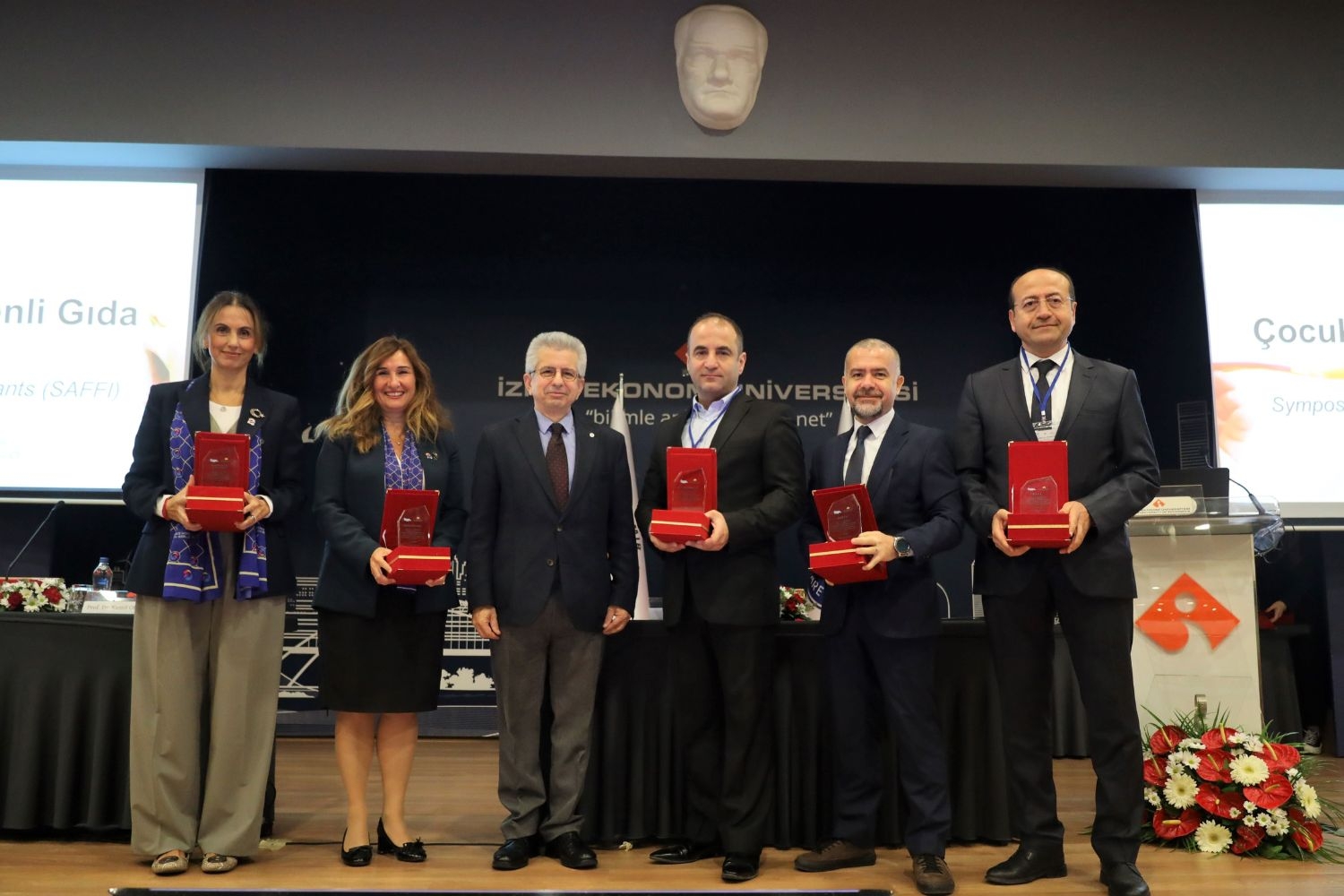
...

...
VOCATIONAL SCHOOL OF HEALTH SERVICES
Department of Child Development| Course Name |
Child Nutrition
|
|
Code
|
Semester
|
Theory
(hour/week) |
Application/Lab
(hour/week) |
Local Credits
|
ECTS
|
|
CG 221
|
Fall/Spring
|
2
|
0
|
2
|
3
|
| Prerequisites |
None
|
|||||
| Course Language |
Turkish
|
|||||
| Course Type |
Elective
|
|||||
| Course Level |
Short Cycle
|
|||||
| Mode of Delivery | - | |||||
| Teaching Methods and Techniques of the Course | DiscussionQ&ALecture / Presentation | |||||
| National Occupation Classification | - | |||||
| Course Coordinator | ||||||
| Course Lecturer(s) | ||||||
| Assistant(s) | - | |||||
| Course Objectives | The aim of thiscourse is to learn concepts of nutrient, nutrition, adequate and balanced nutrition, conservation, preparation and presentation of foods, characteristics of nutrition according to children’s developmental period. |
| Learning Outcomes |
The students who succeeded in this course;
|
| Course Description | Basic Concepts Related to Nutrition, Importance of Child Nutrition, Eating Habits of Children, Planning Nutrition Time,Nutrition of Children with Special Situations, Preparing Food, Cooking, Keeping and Presentation, Preparing Menu for Children, Nutrition According to Developmental Periods. |
| Related Sustainable Development Goals |
|
|
Core Courses | |
| Major Area Courses | ||
| Supportive Courses |
X
|
|
| Media and Management Skills Courses | ||
| Transferable Skill Courses |
| Week | Subjects | Related Preparation |
| 1 | Introduction to Course | |
| 2 | Basic Concepts Related to Nutrition | Baysal A. Beslenme. 16. Edition. Hatiboğlu Yayınevi. Ankara. 2015 (p.9-18, 79-108, 273-382) |
| 3 | Relation Between Nutrition and Health | |
| 4 | Carbohydrates | Baysal A. Beslenme. 16. Edition. Hatiboğlu Yayınevi. Ankara. 2015 (p.19-39) |
| 5 | Proteins | Baysal A. Beslenme. 16. Edition. Hatiboğlu Yayınevi. Ankara. 2015 (p.53-78) |
| 6 | Fats | Baysal A. Beslenme. 16. Edition. Hatiboğlu Yayınevi. Ankara. 2015 (p.37-52) |
| 7 | Vitamins and Minerals | Baysal A. Beslenme. 16. Edition. Hatiboğlu Yayınevi. Ankara. 2015 (p.157-193) |
| 8 | Midterm Exam | |
| 9 | Nutritional Requirements According to Developmental Periods | Karaağaoğlu, N., & Samur, G. E. Anne ve çocuk beslenmesi. Pegem Akademi, Ankara. (p.57-69) |
| 10 | Nutritional Requirements According to Developmental Periods | Karaağaoğlu, N., & Samur, G. E. Anne ve çocuk beslenmesi. Pegem Akademi, Ankara. (p.73-84) |
| 11 | Safe Food Preparation | Karaağaoğlu, N., & Samur, G. E. Anne ve çocuk beslenmesi. Pegem Akademi, Ankara. (p.115-121) |
| 12 | Nutrition and Menu Preparation in Preschool Educational Institutions | Karaağaoğlu, N., & Samur, G. E. Anne ve çocuk beslenmesi. Pegem Akademi, Ankara. (p.111-115) |
| 13 | Eating Habits in Childhood - The Importance of Adequate and Balanced Nutrition | Karaağaoğlu, N., & Samur, G. E. Anne ve çocuk beslenmesi. Pegem Akademi, Ankara. (p.111-115) |
| 14 | Nutritional Problems in Children | Baysal A. Beslenme. 16. Baskı. Hatiboğlu Yayınevi. Ankara. 2015 (p.86-100) |
| 15 | Evaluation | |
| 16 | Final Exam |
| Course Notes/Textbooks |
|
| Suggested Readings/Materials |
|
| Semester Activities | Number | Weigthing |
| Participation |
16
|
5
|
| Laboratory / Application | ||
| Field Work | ||
| Quizzes / Studio Critiques |
2
|
25
|
| Portfolio | ||
| Homework / Assignments | ||
| Presentation / Jury | ||
| Project | ||
| Seminar / Workshop | ||
| Oral Exams | ||
| Midterm |
1
|
30
|
| Final Exam |
1
|
40
|
| Total |
| Weighting of Semester Activities on the Final Grade |
4
|
60
|
| Weighting of End-of-Semester Activities on the Final Grade |
1
|
40
|
| Total |
| Semester Activities | Number | Duration (Hours) | Workload |
|---|---|---|---|
| Theoretical Course Hours (Including exam week: 16 x total hours) |
16
|
2
|
32
|
| Laboratory / Application Hours (Including exam week: '.16.' x total hours) |
16
|
0
|
|
| Study Hours Out of Class |
14
|
1
|
14
|
| Field Work |
0
|
||
| Quizzes / Studio Critiques |
2
|
5
|
10
|
| Portfolio |
0
|
||
| Homework / Assignments |
0
|
||
| Presentation / Jury |
0
|
||
| Project |
0
|
||
| Seminar / Workshop |
0
|
||
| Oral Exam |
0
|
||
| Midterms |
1
|
12
|
12
|
| Final Exam |
1
|
22
|
22
|
| Total |
90
|
|
#
|
Program Competencies/Outcomes |
* Contribution Level
|
|||||
|
1
|
2
|
3
|
4
|
5
|
|||
| 1 |
To have the required contemporary theoretical and practical knowledge in his/her field |
-
|
X
|
-
|
-
|
-
|
|
| 2 |
To use the material and technology related to his/her field, and make their maintenance, use the information and communication technologies at basic level |
-
|
-
|
-
|
-
|
-
|
|
| 3 |
To have the competency to recognize the problems in his/her field, analyze them, develop evidence-based solutions and have the ability to share their suggestions with others |
-
|
-
|
-
|
-
|
-
|
|
| 4 |
To be aware of legal responsibilities, conduct basic studies in her/his field independently |
-
|
X
|
-
|
-
|
-
|
|
| 5 |
To communicate with patients, relatives and colleagues properly, comprehensively, honestly and explicitly, transfer his/her thoughts and knowledge through written and oral communication |
-
|
-
|
-
|
-
|
-
|
|
| 6 |
To take responsibility as an active team member during the practices in his/her field |
X
|
-
|
-
|
-
|
-
|
|
| 7 |
To commentate and evaluate the scientific information with a critical approach by the help of knowledge gained in his/her field |
-
|
-
|
-
|
-
|
-
|
|
| 8 |
To comprehend the importance of lifelong learning, to determine and meet her/his learning needs, to develop herself/himself by monitoring the development in science and technology |
X
|
-
|
-
|
-
|
-
|
|
| 9 |
To act by considering the universal ethical values, social and cultural characteristics |
-
|
-
|
-
|
-
|
-
|
|
| 10 |
To know the concepts of occupational safety, patient safety, environmental protection and quality, and fulfill the requirements |
-
|
X
|
-
|
-
|
-
|
|
| 11 |
To be able to follow information in his field and communicate with colleagues in English at least a level of European Language Portfolio A2 General Level |
-
|
-
|
-
|
-
|
-
|
|
| 12 |
To have the skills of improving the development and learning of children with special needs |
-
|
-
|
-
|
-
|
-
|
|
| 13 |
To plan and carry out activities for development of people under their responsibility |
-
|
-
|
-
|
-
|
-
|
|
*1 Lowest, 2 Low, 3 Average, 4 High, 5 Highest

...

...

As Izmir University of Economics transforms into a world-class university, it also raises successful young people with global competence.
More..Izmir University of Economics produces qualified knowledge and competent technologies.
More..Izmir University of Economics sees producing social benefit as its reason for existence.
More..